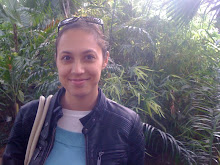Friday, January 29, 2010
Locke in the News
The statue titled “Defiance” (a statue of a slave woman) was taken from Chicago State University by Arnold Jordan and given to State Rep. Monique Davis (his girlfriend). Arnold Jordan claimed to have found the statue lying on the floor of Chicago State University’s warehouse, among broken furniture, and collecting dust; which by Locke’s reasoning is not being used to its potential, so by all means, it can be claimed by someone else.
Locke’s theory of private property tells us that we can acquire as much as we want as long as we don’t let any of it go to waste. By not only storing the statue, but by doing it in a manner that was inappropriate to the point of possibly harming the statue, Chicago State University was letting the statue go to waste and therefore stealing property that could be of use to someone else.
In the end, Monique Davis agreed to return the statue to the Chicago State University, who intends on using the statue on a display in front of the library. And it is obvious that it is due to the property norms of today. But I can’t help but wonder if such situation had presented itself at a time where Locke’s views were predominant, if Davis would be obligated to give back the statue once the University displayed interest in using it again, or if it would be a “users keepers” and Chicago State University would have forfeited their right of use, when they stopped doing so.
Tuesday, January 19, 2010
Aristotle in the News
In this day and age, when profits are the driving force of our capitalist society, there are still companies that manage to have a heart and think of the other in times of need, bringing back concepts that were introduced by Aristotle many years ago. Concepts like the proper use of one’s property explored by Aristotle in his book Politics come to mind when looking at the article “United to transport supplies to Haiti” reported by Julie Johnsson with the help of Bruce Japsen, on the Chicago Tribune. The report stated that United Airlines together with Walgreens, Abbott Laboratories, and Baxter International, Inc. are going to offer relief to the people in Haiti.
The help which consists of water, food, medication, and hygiene products that will be transported by United Airlines to Port-au-Prince exemplifies Aristotle’s belief of property ownership. Aristotle believed that the best arrangement in society for ownership and usage of property is when property is privately owned, but its use is common. These companies are using their own resources and distributing them among people in need. Also, the article reported that pending visa issues with the government, United Airlines plans on transporting orphans back to the US where they can be treated and given a chance of safety. While some may argue that these actions of solidarity are not in the best interest of these companies, as well as the country, however my personal belief lies with Aristotle, we are all in the search for living the “good life,” and strides of humanity and charity can ensure that we as a race help each other achieve this common goal together.
